Vietnam: What are the requirements for experiential activities for the development of special competencies of students of all education levels?
What are the requirements for experiential activities for the development of special competencies of primary school students in Vietnam?
Under Section 5 of the General Education Program on Experiential Activities issued together with Circular 32/2018/TT-BGDDT, experiential activities for the development of special competencies of primary school students must meet the following requirements:
| Competency | Primary school students |
| LIFE ADAPTATION COMPETENCY | |
| Understanding of oneself and the living environment | - Identifying changes in their own body, emotions, and thoughts. - Developing certain habits, lifestyles, and self-service skills. - Recognizing appropriate and inappropriate needs. - Detecting problems and confidently expressing their thoughts. - Pointing out differences between individuals in attitudes, abilities, interests, and actions. - Identifying some dangers from the living environment to themselves. |
| Skills to adjust oneself and respond to changes | - Proposing different solutions for the same problem. - Mastering their own emotions, attitudes, and behaviors and showing confidence in front of a crowd. - Independently performing some age-appropriate tasks. - Knowing how to satisfy appropriate needs and restrain inappropriate needs. - Performing tasks with different requirements. - Knowing how to handle some dangerous situations. |
| ACTIVITY DESIGN AND ORGANIZATION COMPETENCY | |
| Planning skills | - Identifying goals for individual and group activities. - Participating in determining the content and methods of implementing individual and group activities. - Estimating the time to complete tasks. |
| Skills to implement and adjust activities | - Implementing personal activity plans. - Knowing how to seek assistance when necessary. - Actively participating in group activities. - Showing sharing and support for peers during activities. - Knowing how to resolve conflicts that arise during activities. |
| Activity evaluation skills | - Pointing out the significance of the activity to oneself and the group. - Identifying personal progress after the activity. - Pointing out areas needing improvement in organizing activities and the active participation of individuals and groups. |
| CAREER ORIENTATION COMPETENCY | |
| Understanding professions | - Describing the characteristics and significance of some jobs and professions of family members and local professions. - Pointing out some qualities and competencies needed for some familiar jobs. - Describing some tools used in professions and how to use them safely. |
| Understanding and training qualities and competencies related to professions | - Showing interest and preference for some familiar jobs. - Developing responsibility in work and adherence to regulations. - Performing and completing tasks. - Knowing how to use some household labor tools safely. |
>> See the General Education Program on Experiential Activities issued together with Circular 32/2018/TT-BGDDT: Download

What are the requirements for experiential and career orientation activities for the development of special competencies of students of all education levels in Vietnam? (Image from the Internet)
What are the requirements for experiential activities for the development of special competencies of lower secondary school students in Vietnam?
Under Section 5 of the General Education Program on Experiential Activities issued together with Circular 32/2018/TT-BGDDT, experiential activities for the development of special competencies of lower secondary school students in Vietnam must meet the following requirements:
| Competency | Lower secondary school students |
| LIFE ADAPTATION COMPETENCY | |
| Understanding of oneself and the living environment | - Identifying the characteristic behaviors and speech patterns of oneself. - Displaying their interests in a positive direction. - Expressing personal opinions while debating, commenting on social phenomena, and resolving conflicts. - Explaining the impact of bodily changes on their emotional states and behaviors. - Finding value and meaning of oneself to family and friends. - Explaining the impact of diversity in the world, culture, humans, and the natural environment on life. - Identifying risks from the natural and social environment that impact human life. |
| Skills to adjust oneself and respond to changes | - Applying learned knowledge and skills to solve problems in different situations. - Controlling personal emotions in various communication and behavior situations. - Preparing necessary knowledge and skills to meet assigned tasks. - Performing tasks with different requirements. - Displaying appropriate communication and behavior for situations. - Knowing how to cope with risks and dangers from the natural and social environment. |
| ACTIVITY DESIGN AND ORGANIZATION COMPETENCY | |
| Planning skills | - Defining goals, proposing suitable contents and methods for individual and group activities. - Anticipating personnel participation and appropriately assigning tasks to members. - Estimating the time required to complete tasks. |
| Skills to implement and adjust activities | - Carrying out individual activity plans and flexibly adjusting when needed to achieve goals. - Demonstrating cooperation, help, and support for others to complete tasks. - Knowing how to self-motivate and encourage others to complete tasks. - Resolving issues that arise during activities and relationships with others. |
| Activity evaluation skills | - Evaluating the reasonableness or unreasonableness of the activity plan. - Evaluating factors affecting the implementation of activities. - Pointing out personal and others' contributions to the activity outcomes. - Drawing lessons learned from participating in activities. |
| CAREER ORIENTATION COMPETENCY | |
| Understanding professions | - Introducing common professions/groups of professions in the locality and Vietnam, pointing out their socio-economic roles. - Analyzing the qualities and competencies required for professions of interest. - Presenting the development trends of professions in Vietnam. - Introducing necessary knowledge groups and training institutions related to career orientation. - Identifying tools of professions, potential safety risks, and ways to ensure occupational health. |
| Understanding and training qualities and competencies related to professions | - Developing career interest and knowing how to nurture career passion. - Identifying strengths and weaknesses in personal qualities and competencies related to the chosen profession. - Training basic qualities and competencies for workers. - Knowing how to maintain safety and occupational health. |
| Skills on decision-making and planning study according to career orientation | - Choosing a suitable direction upon completing general education. - Planning study and training according to the chosen direction. |
>> See the General Education Program on Experiential Activities issued together with Circular 32/2018/TT-BGDDT: Download
What are the requirements for experiential activities for the development of special competencies of upper secondary school students in Vietnam?
Under Section 5 of the General Education Program on Experiential Activities issued together with Circular 32/2018/TT-BGDDT, experiential activities for the development of special competencies of upper secondary school students in Vietnam must meet the following requirements::
| Competency | Upper secondary school students |
| LIFE ADAPTATION COMPETENCY | |
| Understanding of oneself and the living environment | - Identifying one's personal style. - Displaying personal interests and an optimistic spirit towards life. - Demonstrating independent thinking and problem-solving. - Evaluating one's strengths, weaknesses, and capacity for change. - Affirming one's role and position within family, school, and society. - Explaining why the surroundings always change and drawing lessons for oneself from this understanding. - Analyzing the impact of the natural and social environment on individual health and psychology, and identifying one's impact on the natural and social environment. |
| Skills to adjust oneself and respond to changes | - Adjusting personal knowledge, skills, and experiences to fit new contexts. - Altering personal thoughts, attitudes, and emotions to adapt to new requirements, tasks, and circumstances. - Displaying the ability to self-learn in new situations. - Performing tasks in new circumstances. - Demonstrating confidence in various communication and conduct relationships. - Solving some problems related to the natural and social environment according to one's capacity. |
| ACTIVITY DESIGN AND ORGANIZATION COMPETENCY | |
| Planning skills | - Identifying goals, content, tools, and forms appropriate for activities. - Anticipating necessary resources for activities: personnel, finances, and other conditions. - Estimating time for each activity and arranging them suitably. |
| Skills to implement and adjust activities | - Completing activity plans on time and flexibly adjusting when necessary. - Demonstrating proactive cooperation and support for everyone to achieve common goals. - Leading oneself and the group, creating motivation, and mobilizing group strength to complete tasks according to the plan. - Selecting substitute activities more suitable for subjects, conditions, and circumstances. - Handling situations and solving problems creatively during activities. |
| Activity evaluation skills | - Evaluating objective and subjective factors affecting activity organization and outcomes. - Objectively and fairly evaluating personal and others' contributions during activities. - Drawing lessons and proposing improvements. |
| CAREER ORIENTATION COMPETENCY | |
| Understanding professions | - Explaining working conditions, tasks, and positions of various professions/groups. - Analyzing qualities and competencies required for professions. - Presenting societal demand for professions and their development. - Providing information about colleges, universities, vocational schools, and training institutions related to career orientation. - Analyzing the role of professional tools, safe usage, potential accidents, and ways to ensure occupational health. |
| Understanding and training qualities and competencies related to professions | - Showing interest and regularly engaging in activities related to the profession or field. - Identifying personal qualities and competencies that fit or do not fit the requirements of the chosen profession. - Training qualities and basic competencies meeting the requirements of the chosen profession and others. - Knowing how to maintain occupational safety and health. |
| Skills on decision-making and planning study according to career orientation | - Synthesizing and analyzing subjective and objective information related to the chosen profession. - Deciding on the choice of profession, training school, and career learning direction. - Planning study and career development. |
>> See the General Education Program on Experiential Activities issued together with Circular 32/2018/TT-BGDDT: Download
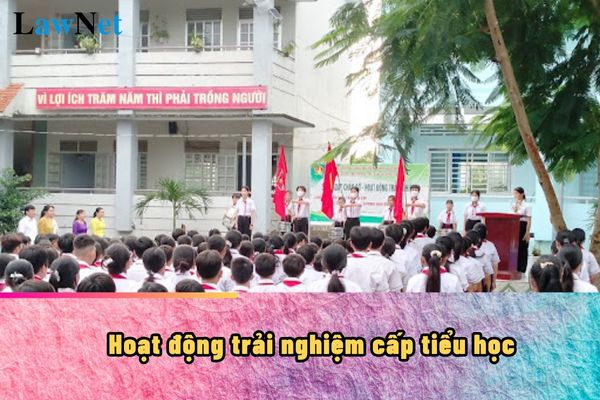
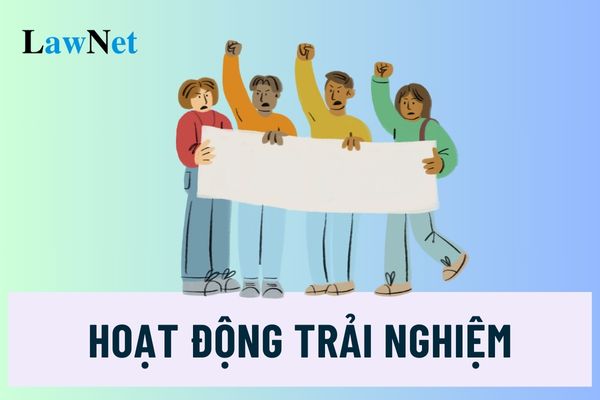

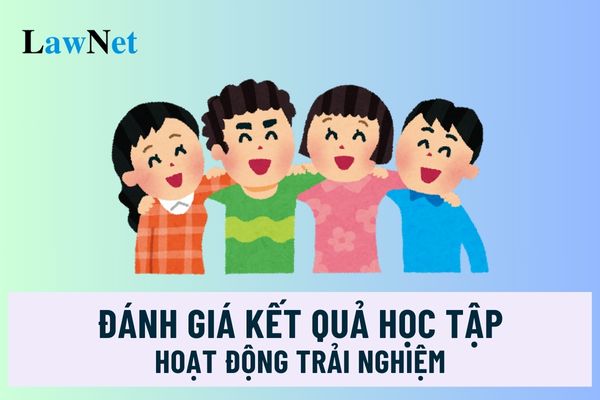
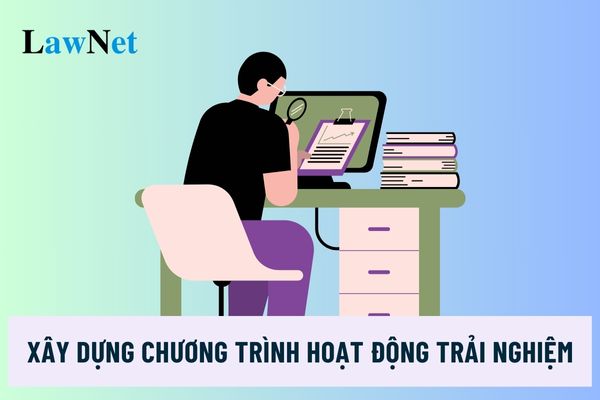
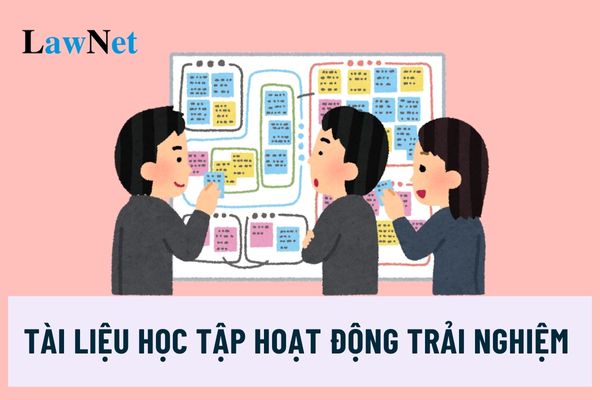

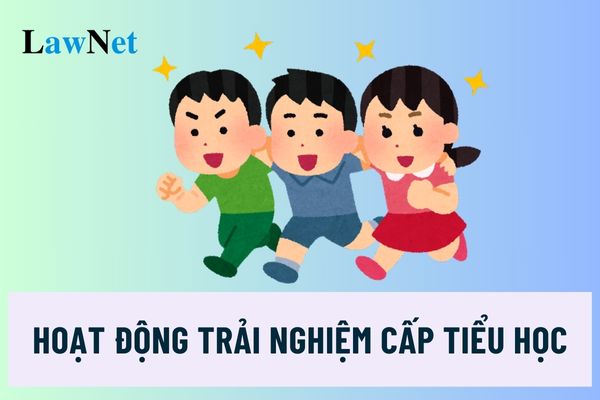
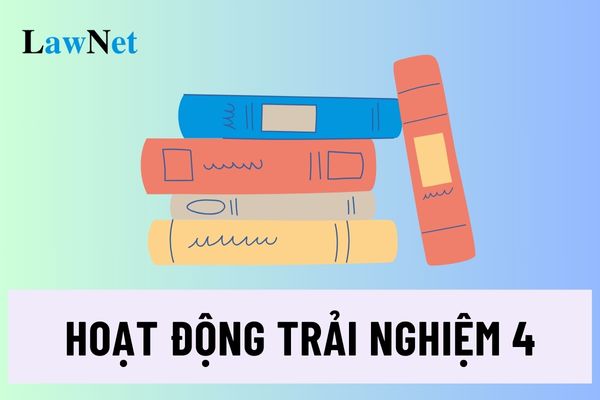
- Vietnam: What is the sample outline of an essay on the analysis of expressions of national spirit in the Poem "Việt Bắc" for 12th-grade students? What patriotic qualities are required for 12th-grade students?
- Vietnam: What are your thoughts on the Poem "Tiếng ru" by To Huu? How many lessons are there in the 12th-grade Literature curriculum per year?
- What are the sample essays describing your grandfather for 5th-grade students in Vietnam? What are the assessment criteria for 5th-grade students in 2024?
- Vietnam: What are the sample social argumentative essays on social media etiquette for 10th-grade students? What Vietnamese knowledge do 10th-grade students learn?
- Vietnam: Why is the French Bourgeois Revolution considered the most thorough one? What learning outcomes are required for 11th-grade students after studying the bourgeois revolution?
- Vietnam: What is the atmosphere? What is the grade at which students are required to master the knowledge of the atmosphere in the History and Geography curriculum?
- Vietnam: Why does the phenomenon of day and night alternation occur on Earth? What is the grade at which students learn about the phenomenon of day and night alternation on Earth?
- What is the newest report template on distance education at the higher education level in Vietnam?
- Vietnam: What are the shortest sample expositions on Ba Den Mountain for 9th-grade students? What learning outcomes are required for the writing process in the 9th-grade Literature curriculum?
- In Vietnam, what does local time mean? What is the grade at which local time is taught in the History and Geography curriculum?

